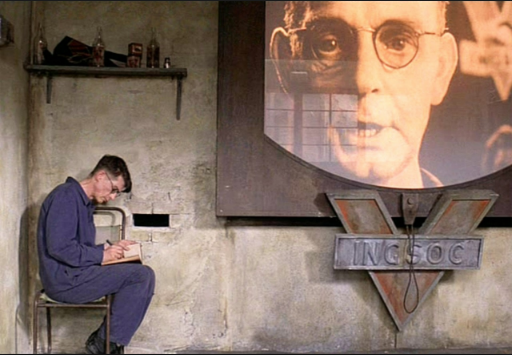
The problem was how to keep the wheels of industry turning without increasing the real wealth of the world. Goods must be produced, but they must not be distributed. And in practice the only way of achieving this was by continuous warfare.
-- George Orwell
1984 - Chapter III
...
The primary aim of modern warfare (in accordance with the principles of doublethink, this aim is simultaneously recognized and not recognized by the directing brains of the Inner Party) is to use up the products of the machine without raising the general standard of living. Ever since the end of the nineteenth century, the problem of what to do with the surplus of consumption goods has been latent in industrial society.
...
In the early twentieth century, the vision of a future society unbelievably rich, leisured, orderly, and efficient -- a glittering antiseptic world of glass and steel and snow-white concrete -- was part of the consciousness of nearly every literate person. Science and technology were developing at a prodigious speed, and it seemed natural to assume that they would go on developing.
...
From the moment when the machine first made its appearance it was clear to all thinking people that the need for human drudgery, and therefore to a great extent for human inequality, had disappeared. If the machine were used deliberately for that end, hunger, overwork, dirt, illiteracy, and disease could be eliminated within a few generations. And in fact, without being used for any such purpose, but by a sort of automatic process -- by producing wealth which it was sometimes impossible not to distribute -- the machine did raise the living standards of the average human being very greatly over a period of about fifty years at the end of the nineteenth and the beginning of the twentieth centuries.
But it was also clear that an all-round increase in wealth threatened the destruction -- indeed, in some sense was the destruction -- of a hierarchical society. In a world in which everyone worked short hours, had enough to eat, lived in a house with a bathroom and a refrigerator, and possessed a motor-car or even an aeroplane, the most obvious and perhaps the most important form of inequality would already have disappeared. If it once became general, wealth would confer no distinction. It was possible, no doubt, to imagine a society in which wealth, in the sense of personal possessions and luxuries, should be evenly distributed, while power remained in the hands of a small privileged caste.
But in practice such a society could not long remain stable. For if leisure and security were enjoyed by all alike, the great mass of human beings who are normally stupefied by poverty would become literate and would learn to think for themselves; and when once they had done this, they would sooner or later realize that the privileged minority had no function, and they would sweep it away. In the long run, a hierarchical society was only possible on a basis of poverty and ignorance. To return to the agricultural past, as some thinkers about the beginning of the twentieth century dreamed of doing, was not a practicable solution. It conflicted with the tendency towards mechanization which had become quasi-instinctive throughout almost the whole world, and moreover, any country which remained industrially backward was helpless in a military sense and was bound to be dominated, directly or indirectly, by its more advanced rivals.
Nor was it a satisfactory solution to keep the masses in poverty by restricting the output of goods. This happened to a great extent during the final phase of capitalism, roughly between 1920 and 1940. The economy of many countries was allowed to stagnate, land went out of cultivation, capital equipment was not added to, great blocks of the population were prevented from working and kept half alive by State charity. But this, too, entailed military weakness, and since the privations it inflicted were obviously unnecessary, it made opposition inevitable. The problem was how to keep the wheels of industry turning without increasing the real wealth of the world. Goods must be produced, but they must not be distributed. And in practice the only way of achieving this was by continuous warfare.

 RSS Feed
RSS Feed